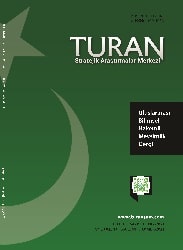DİNİ PLÜRALİZM VƏ İNSANLARIN ZATƏN PAKLIQ MƏSƏLƏSİ...
RELIGIOUS PLURALISM AND THE PURITY OF PEOPLE...
Author(s): İlqar İsmayilzadəSubject(s): Islam studies, Philosophy of Religion, Sociology of Religion
Published by: Sage Yayınları
Keywords: Man; Religion; Religious pluralism; Qur'an; Honor; Respect; Dignity; Fiqh; Faqihs; Purity;
Summary/Abstract: Islam, as one of the most popular religions in the world, presents its teachings mainly in the following two parts: 1. Beliefs and beliefs; 2. Deeds and judgments. The section on deeds or rulings in Islam is presented under the title "Rules of Sharia". There are hundreds and thousands of rules and regulations in various fields. The collection of Shari'ah rules of Islam is studied on the basis of special rules and principles and is mostly derived from the Qur'an and Sunnah (hadiths), which are considered to be the main sources of this religion. Of course, there are those who refer to other principles and sources ... Among the provisions of the Shari'ah, there are a number of rulings (fatwas) that still need to be studied in detail. One of them is the issue of purity of people who are outside the religion of Islam. Unfortunately, due to the lack of serious and accurate research on the origins of Islam, for centuries, some religious scholars have issued special fatwas regarding the fact that non-Muslims are considered unclean and that their bodies are protected from sweat and youth. This is not only one of the most serious blows to the traditions of tolerance and multiculturalism, but also an issue that can overshadow the honor and dignity of the people. In fact, there may be a number of fundamental reasons or reasons for such a view, one of which is that, from the Qur'an's point of view, the theory of religious pluralism is not acceptable, and the emergence of Islam it may be a declaration that all existing religions are unreliable. Because when one considers one's religion to be the most superior and invincible, an insulting view of members of other religions is engraved in history as one of the eternal problems in the history of religions. Here, this ruling (fatwa) has been studied from the point of view of the main sources of Islam and appropriate results have been obtained.
Journal: TURAN-SAM
- Issue Year: 13/2021
- Issue No: 51
- Page Range: 77-83
- Page Count: 7
- Language: Azerbaijani

